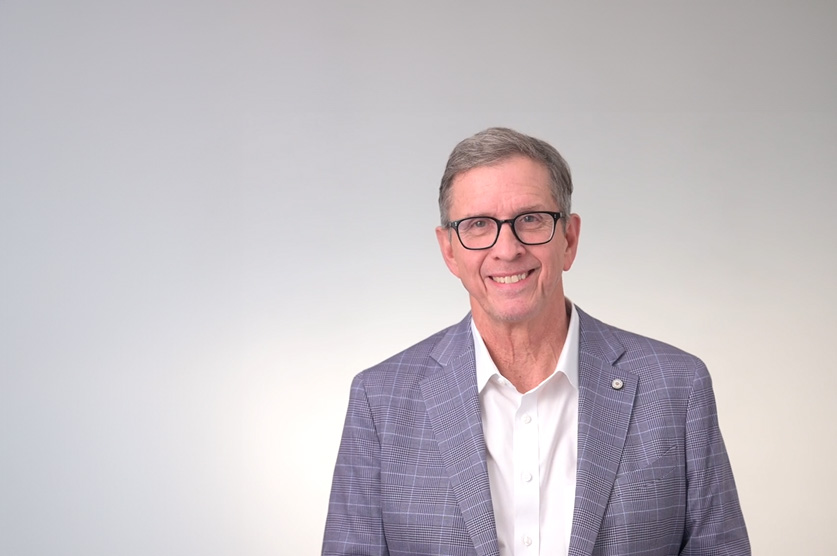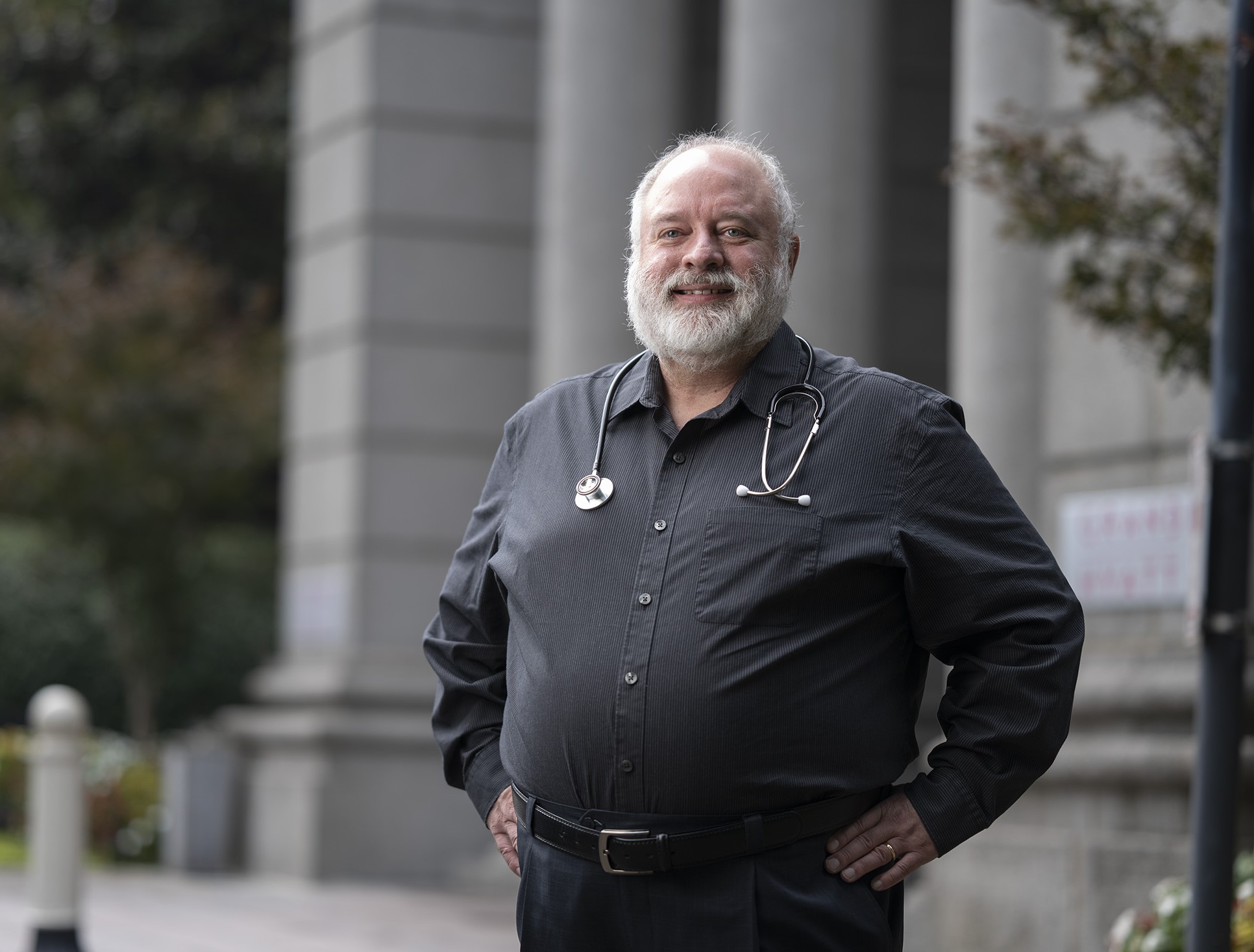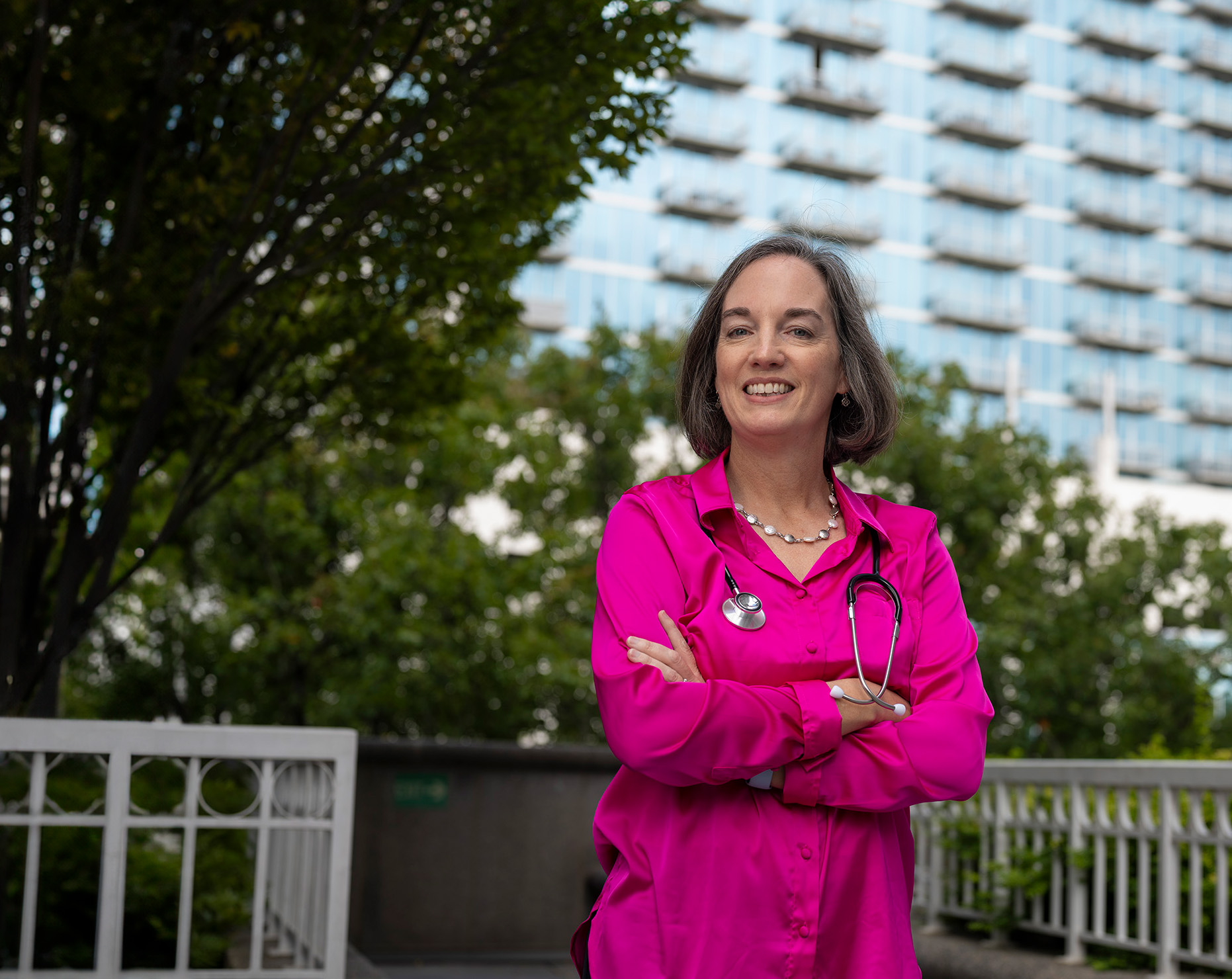As a company rooted in the power of partnership, we take every opportunity to hear, learn from and amplify the voices of our Physician Network. We sat down with Dr. Joseph Allen, a family physician with Premier Health in Dayton, Ohio, to learn what the unique agilon health Total Care Model means to him and his patients.
agilon health: First things first — what drew you to build your career in family practice?
Joseph Allen: Quite simply, I believe that primary care is — or should be — at the center of the health care system. And the reason for that is that primary care is the only specialization focused on preventing disease. Our whole reason for being is to work with patients to prevent chronic illness, joint trouble and the like, before it starts — not too late down the road when it’s time for a hip replacement.
More so than in any other specialization, as primary care doctors we have the opportunity to support our patients as whole individuals. As people. Whether that’s about preventative steps we can take before chronic issues set in, or about providing compassionate, thoughtful care as end of life approaches, as primary care doctors we can truly influence lifetime health in a way no other type of physician can.
agilon health: You mentioned primary care should be at the center of the health care system. What makes you say this?
Joseph Allen: Because that’s not the way it is today in America. Any primary care doctor will tell you that we’re not where we want to be, and the direction we’ve been moving is not where we want to go. The current system puts the hospital at the center of the health care system. But the problem with that is often, by the time a patient is hospitalized, the promise of primary care has already gone unfulfilled. Basically, focusing on the hospital keeps us stuck in the sickness business. And as a primary care physician, I want to be in the health business.
agilon health: It sounds like the traditional model has been a challenge in your personal career experience. How so?
Joseph Allen: It’s been the hamster wheel — and I know this story is all too familiar for any primary care doctor in practice today. The fee-for-service model requires us to see maybe 30 patients per day. And the next year that number is 20% higher, and the next year even more. And this truly erodes the value of what we’re able to do, what we were trained to do.
As a family practice doctor, what I do best is continuity of care — staying with a patient over time, spending the time it takes to really understand what’s going on in their life and how that relates to their health. Taking the time to build the kind of relationship where I can influence habits, lifestyle choices and decisions for better health, rather than just treating symptoms on a never-ending treadmill. The sad truth is that fee-for-service just doesn’t allow me to provide the care I’m capable of, and that my patients deserve, while maintaining a financially sustainable practice.
agilon health: How does your partnership with agilon health change these dynamics?
Joseph Allen: The biggest difference, quite frankly, is resources. The ability to spend more time with each patient is paramount. But in addition to that, there’s a huge amount of work that goes into primary care that extends beyond the hours or minutes spent with patients in an exam room. In the fee-for-service model, we don’t get paid for any of that. And that’s where the hamster wheel comes in. With agilon, and value-based care in general, I’m compensated for the holistic care I provide to my patients — not just diagnoses and treatments. That opens up a whole new way of practicing medicine. Or I should say, it takes us back to the way most family doctors wanted and intended to practice medicine when they entered the field to begin with. Getting back to that excites me more than I can say, and I think any family doctor would feel equally jazzed about it.
agilon health: Do you think the agilon model will help your practice recruit more younger primary care physicians?
Joseph Allen: Definitely. Younger physicians are looking for balance in their working lives. They want to practice medicine while also having the time they desire with their families, and not necessarily be tethered to long hours in the office every day. The agilon model allows that by facilitating a sustainable practice with lower patient loads. That’s really going to resonate with younger physicians.
In the bigger picture, it’s all part of making that shift in health care where we move the hospital out of the center, and primary care takes its rightful place. That’s going to get younger physicians thinking ‘maybe I don’t want to go into neurology or orthopedics, maybe primary care is looking pretty good.’ That shift in thought is going to drive a large influx of new talent into primary care, and that’s dearly needed.
agilon health: In our full-risk value-based care model and through our long-term partnerships with physician practices, agilon and the physician partner take on responsibility for the total cost of a patient’s care. Is that a downside?
Joseph Allen: Absolutely not. In my opinion physicians are responsible for focusing on the entire health of their patients by being responsible for the total cost and quality of care, helping to achieve better outcomes and lower costs.Controlling costs is about treating each patient as an individual, understanding that there’s not one standard treatment that is right all the time for a given situation. When you have the freedom, as a physician, to treat each patient as a unique individual and support the best long-term health outcomes, that’s taking responsibility for cost of care in the right way. A model like agilon gives us a lot of power — and with that comes great responsibility. I’d love to see more physicians embrace that power. It’s our chance to truly fix what’s broken in primary care today. And in my opinion, the time is now.
Contact for media enquiries
[email protected]Up Next.

Blog Aug 01, 2024
Q&A with Dr. John Gover: Redefining Success After 38 Years
After nearly four decades in practice, Dr. John Gover — an internal medicine doctor with Graves...




